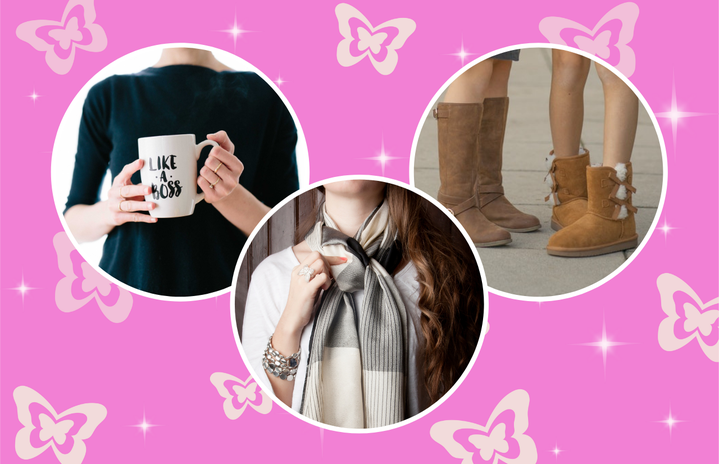The internet — and the social media vacuum it’s concentrated in — can be like a petri dish, growing constant ideas, conversations, exchanges, ingenuity, and nuance. Unfortunately, it can also a breeding ground for toxicity, including Internet buzzwords, either by re-assigning new meanings to certain words and phrases, reshaping how we engage with them, or by inventing new words.
Internet slang such as “basic” and TikTok’s favorite from earlier this year, “cheugy,” might ring a bell, but what do either of those really mean? What makes me basic? What is cheugy? Why is it that these terms have such a grip on us when we might not even fully understand their meanings — or, perhaps, more importantly, the larger impact using them can have? I spoke to two psychologists to figure out the hurt these terms can cause that we may not even be aware of.
Internet Buzzwords 101
Basic and cheugy are two highly prevalent terms on the Internet, used to either describe something or someone that is out of touch with current style. The definitions of both are typically so negative and pejorative that people actively disengage with anything that could potentially have them branded as either one.
Dr. Holly Schiff, a licensed clinical psychologist, recognizes this phenomenon. “My patients admit this to me all the time,” she tells Her Campus. “They think and overthink so much about what they post on social media and how they behave, dress, and what they admit to liking for fear of the response they’ll get online.” Dr. Schiff adds that that she notices her patients “start to lose themselves and their own identity in the process … There’s an imaginary audience that they’re front and center stage for, and this audience can be quite judgmental and hurtful with their comments and responses on social media.”
One of the main problems with this judgment is that it’s constantly evolving, making it difficult to pin down how to avoid it. Today, the term basic is almost ambiguous in meaning and use. What was considered “recognizably” basic a couple of years ago, like pumpkin spice lattes and Ugg boots (which are now back in style, proving the trend cycle is alive and well), is different from what’s considered basic today. Think about how the “VSCO girl” aesthetic — Hydroflasks, scrunchies, and Birkenstocks, for example — was trendy until it wasn’t. Once people began making fun of it, it was “basic.” There’s a sort of unspoken agreement that no one wants to be basic, even though we rarely know if we’re basic until someone else decides we are. We’re in a nonstop state of altering and tweaking how we dress, how we accessorize, and even how we decorate our homes to appease this looming term and its negative associations — or at least there’s the expectation that we do so.
The newest meme-y insult, cheugy, was first brought to the world’s attention in March by TikTok user @webkinzwhore143 in a video that went viral; countless users outspokenly gave their input as to what they thought was cheugy. However, the term cheugy was actually “invented” in 2013, the definition being literally anything that is the “opposite of trendy.” Initially, cheugy was very Gen Z vs. Millennial regarding what’s de rigueur: high-rise vs. low-rise jeans, Rae Dunn homeware, and anything chevron. It quickly sparked responses among the unassuming people who, by de facto, were suddenly “cheugs” just because of their affinity for “live, laugh, love” signs. Shortly after cheugy first flooded our TikTok feeds, the meaning became slightly blurred. Simply put, it’s now thrown around to describe anything the user doesn’t like, and not just things that could generally be considered out of style.
And that’s the problem. You can’t ever win with an ambiguous term that can always be redefined against you, from the shoes you’re wearing to your phone case.
Who Cares About Criticism From Internet Strangers?
While these Internet buzzwords — which primarily exist on social media — aren’t necessarily the end of the world, there are still damaging repercussions. What starts off as fleetingly lighthearted and dismissive commentary about things one person finds disagreeable can turn ugly pretty quickly.
According to Dr. Schiff, these terms can still have major impacts even when there’s no ill intent to accompany them. “It’s like name-calling, just with more buzzy social media slang terms,” she tells Her Campus, adding that “It’s essentially another form of bullying” even if that’s not what anyone meant to do. “If multiple people are liking the comment or agreeing with it and commenting it multiple times, it almost compounds the hurt feeling, because now you see that more than just one person has that opinion about you.”
Dr. Logan Jones, a psychologist and the founder of Clarity Therapy NYC, also points out how these words can be very polarizing when used to essentially objectify people. “It’s important to remember that one of the most toxic experiences that people can internalize is shame,” he tells Her Campus. “Something beyond just being embarrassed, [shame] is the feeling that there’s something wrong or unattractive about you on a fundamental level.”
A key, yet often overlooked, aspect of this issue is that these words are primarily targeted at women. “Women definitely get more negative and abusive comments and responses than men do on social media,” Dr. Schiff says. “This difference absolutely has negative repercussions on a young woman’s psyche and confidence, because, as they’re growing up and learning their own identity, they’re being labeled and stereotyped and put down for being themselves.”
Women are stereotyped, labeled, and judged, not only disproportionately compared to men, but for almost mundane reasons like how they dress and their coffee of choice. And other women are no exception to this — using these terms is just another poorly disguised form of internalized misogyny.
Think Twice Before Casually Throwing Out These Terms
We’ve all used certain Internet or generational slang terms and phrases, many of which are harmless. But with terms like basic and cheugy, there’s more to take into consideration.
Just because you don’t like something or you wouldn’t personally wear a certain style of jeans, does it actually make it basic or cheugy? Must we pigeon-hold and assign everything a hashtag or a new meaning just to assure others that we don’t align ourselves with that particular thing? Fashion is entirely subjective, so isn’t it enough to simply agree to disagree?
These terms are rarely used in a way that’s positive. It can be incredibly exhausting for strangers to constantly confront you with everything you’re supposedly doing wrong. If you genuinely enjoy something, buy it, wear it, decorate your house with it. Strangers on the internet shouldn’t have any bearing on that, and if you’re someone who’s casually thrown this terminology around in the past, now is a good time to start thinking about better ways to disagree with someone — like, perhaps, doing it silently. The bottom line is to be mindful of the language you use and know that it’s okay to not like something, while allowing others to enjoy it.
Experts:
Holly Schiff, Psy.D., Clinical Psychologist
Logan Jones, Psy.D., Owner of Clarity Therapy NYC


